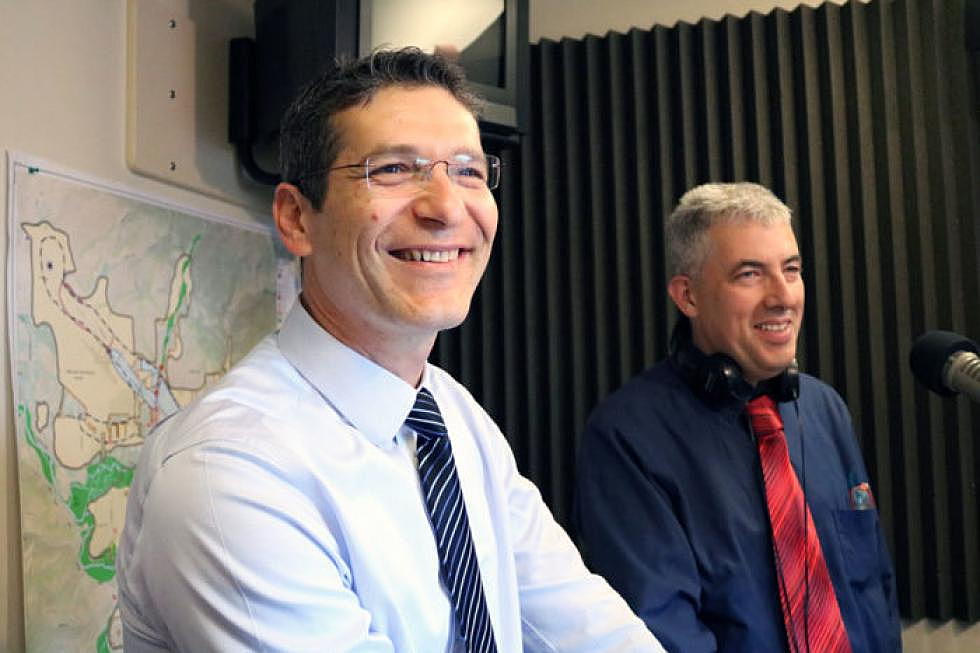
Israeli water experts share technology, conservation in Missoula
A delegation of Israeli water experts met with state leaders in Butte this week before stopping in Missoula to discuss water scarcity and the leading technologies developed by the desert nation to address the shortage on a global scale.
Led by Israeli Consul General Andy David and the Montana World Affairs Council, the delegation came to observe Montana's varied water practices and hear the concerns of state officials confronted with a future where water could become scarce in a shifting climate.
“I hear in the U.S. that whiskey is for drinking and water is for fighting,” said David, who has visited Missoula several times over his four-year tenure as consul general. “The world does face a water shortage already. There are policies that need to be in place and planning to ensure there is no shortage of food or water.”
While clean drinking water and rich aquifers are currently abundant in Montana, climate experts, including those at the state's two flagship universities, project that may change later this century as rainfall tapers off and temperatures rise.
The situation is even more dire in other parts of the West, where prolonged drought and reckless water usage has prompted massive changes to both policy and practice. Some suggest Montana may not be far behind, and that could have dire consequences on both an economic and ecological scale.
“It's the No. 1 issue,” said Robert Seidenschwarz, president emeritus of the Montana World Affairs Council. “Every industry, all our agriculture, all of our population centers, they cannot function unless we have secure, clean water.”
David, accompanied by global water experts Avner Adin and Raanan Adin of Israel, spent the past week in Montana observing the state's water practices, from irrigation to municipal consumption.
Touring Butte with Lt. Gov. Mike Cooney, they found that nearly 40 percent of the residences were unmetered. The state's irrigation practices also remain somewhat antiquated in a water-scare world.
“When it comes to irrigation here, we've learned a lot of it is just sprinklers or flood irrigation,” David said. “Drip irrigation in Israel has proven to save on the water, but you also increase the yield. We're basically here to try and understand the challenges and offer our friendship.”
Since its independence in 1948, Israel has been forced by geography and circumstance to address its water shortage. Avner Adin, an emeritus professor at the Hebrew University of Jerusalem and an environmental engineer, said water was the catalyst of change that enabled Israel to thrive in the desert.
“Three thousand years ago, Moses hit a rock with a stick and water came out, but today, we don't have miracles like this,” said Adin. “With climate change, we're facing more troubles. We have to work out and develop more water resources.”
The U.S. Office of the Director of National Intelligence now ranks water scarcity as a major threat to national security. David and his Israeli delegation have seen the risks first hand, from the Middle East to the American West.
To address the problem, Israel has developed new, cost-effective technology to produce drinkable water, including desalination. But it's the nation's conservation practices that could best apply to Montana, and that has the attention of state officials.
“As chair of the Governor’s Drought and Water Supply Advisory Council, I know firsthand how important water is to our economy, quality of life, and the health and safety of Montanans,” Cooney said Wednesday. “It was a great opportunity to engage in a unique partnership between Montana and Israeli water experts, and to discuss innovative ideas to conserve and protect our precious resources and safeguard the right to clean water.”
David described the meeting with state leaders as a “first date,” and said his country's delegation of global water experts will return if requested.
“We're thinking about the next steps and the value we can bring to Montana when it comes to planning, or creating a demonstration project somewhere to show some of our new agriculture techniques, or what we call precision agriculture,” David said.
“People are used to paying for food, but they're not used to paying for water in many cases,” he added. “They look at it as a resource that has no limits, but it does have limits.”
Contact reporter Martin Kidston at info@missoulacurrent.com
